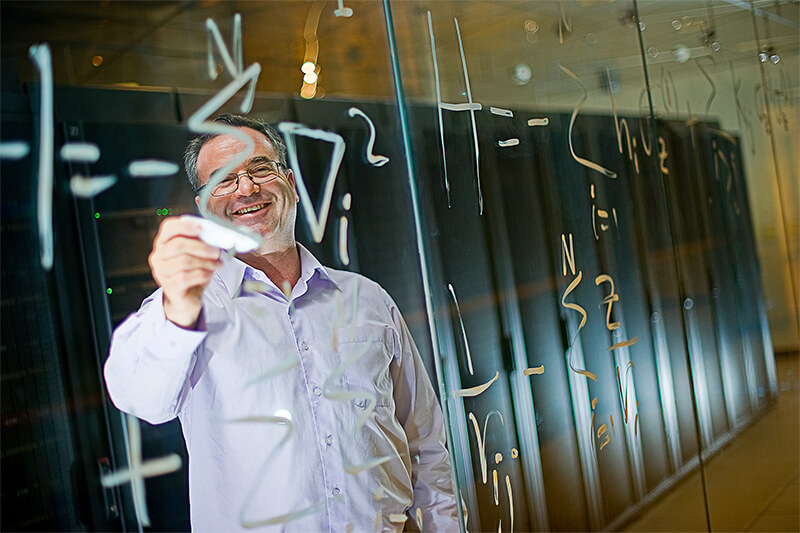October 5, 2018
Purdue team receives $2.5 million to develop quantum computing technologies
 A team of Purdue researchers led by Sabre Kais, a professor of chemistry, received a grant from the U.S. Department of Energy to advance technologies in quantum information science. (Purdue University photo)
Download image
A team of Purdue researchers led by Sabre Kais, a professor of chemistry, received a grant from the U.S. Department of Energy to advance technologies in quantum information science. (Purdue University photo)
Download image
WEST LAFAYETTE, Ind. — For years, researchers have dreamed of the impact quantum computers could have on technology and innovation. Now that several companies, including IBM, Microsoft, Google, IonQ and others, have quantum computers ready to use, it’s up to scientists to figure out how to use them and what to use them for.
A team of Purdue University researchers, led by Sabre Kais, a professor of chemistry, has received a grant for $2.5 million from the U.S. Department of Energy to develop new quantum technologies and systems.
“Once we actually receive a quantum computer, we can’t just use it immediately. Someone has to sit down and write an algorithm that works for that computer,” Kais said.
The group is focusing on open quantum systems, which interact with an external system – the environment. Kais has been working on quantum algorithms for 10 years, but only started trying to develop them for open systems in the last year. This is where the most challenging problems are, he said.
Additionally, the research team will try to create molecules and materials that are easier to manipulate, especially those that can efficiently transfer and store energy or information. These desirable properties often coincide with the emergence of extreme complexity in their many electron-wave functions, but quantum computers could help researchers digest it.
Quantum computing could also make drug design faster and more efficient. Most pharmaceutical companies use similar technologies, and drug design is often a tedious process of trial and error. But quantum computers could make processing extremely large amounts of information and possible medicinal candidates more manageable.
Controlling and protecting coherent quantum states and excitons is the third and final goal of the project.
“Coherent control of reactants remains a longstanding challenge in quantum chemistry,” Kais said.
Kais and David Mazziotti, of the University of Chicago, are the theorists on the research team. The experimental team consists of Yong Chen, Libai Huang, and Dimitry Zemlyanov (Purdue), and John Anderson (University of Chicago).
“Many emerging quantum technologies are poised to significantly change our lives in the decades to come,” Kais said. “We’re coming up on the second coming of the ‘quantum revolution,’ and our team is excited about this opportunity to move the science on these technologies forward.”
This grant was one of 85 awarded by the U.S. Department of Energy to support advancements in the emerging field of quantum information science.
Writer: Kayla Zacharias, 765-494-9318, kzachar@purdue.edu
Source: Sabre Kais, 765-494-5965, kais@purdue.edu

